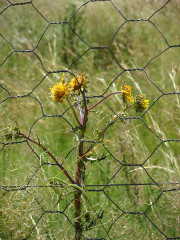They are called sow stalls in Europe and gestation crates in America. Whatever you decide to call them, they are instruments of confinement for sows, which are trapped within narrow metal bars for most of their lives.
This system saves space and therefore money, but by no means can it be considered compatible with the most basic needs of farmed animals. After decades of expansion of their use around the world, in recent years sow stalls have not only been challenged by animal welfare campaigns, but have also started to be banned by law. In the EU they had to go by 2013, although a few countries are still failing to properly implement the ban. Several US states have banned the use of gestation crates either through referendums (‘Initiatives’) or state legislation, and private companies are moving in that direction too.
In April 2014 Arcos Dorados, which is the largest operator of McDonald’s restaurants in Latin America and the Caribbean, announced that it would require its pork suppliers to submit documented plans within two years to limit the use of sow stalls and to draw up plans for alternative group housing. By the end of 2016, all pork procured by Arcos Dorados will be sourced by producers that can demonstrate that they have documented plans to promote group housing for their sows.
We have already reported some of the attempts made by the Brazilian government to improve farm animal welfare in the country, such as the manuals on animal welfare distributed to farmers starting from July 2013.
An even more important decision was announced by Brasilia at the end of September. After a request from the Associação Brasileira dos Criadores de Suínos (Brazilian Association of Swine Breeders – ABCS), the Conselho de Ministros da Câmara de Comércio Exterior (Council of Ministers of the Foreign Trade Chamber – CAMEX) decided to reduce the import tariff from 14% to 2% and VAT from 17% to 5.6% for electronic feeding stations, which are used in collective housing systems. This will favour the purchase of equipment for higher-welfare farms.
The CEO of ABCS, Nilo de Sá, said: ‘This is an important achievement for the sector (…) to be increasingly efficient and thus offer the consumer a quality product that meets the demands related to the environment, animal welfare and social responsibility’.
You can read an article (in Portuguese) on this decision on the ABCS website.
Carolina Galvani Bruun, Senior Manager for Brazil of the Farm Animal Welfare campaigns of the Humane Society International (HSI), has written an article that links this achievement to other advances in farm animal welfare in Brazil. You can read it (in Portuguese) on the Brasil Post website.
Free subscription to the AnimalWelfareAndTrade Newsletter: CLICK HERE
AWAT on Twitter: CLICK HERE
AWAT on Facebook: CLICK HERE


